
Africa is a land blessed with so much human and natural resources. It is rich in mineral resources, vast land, and most importantly, a large population of highly intellectual individuals.
Despite the richness of the African land, Africans experience numerous challenges on the way to achieving success, even more so than people from other parts of the world. For example, Africans enjoy little or no government support in their agricultural activities. Resulting in a waste of land and human resources, instead of experiencing a boost in production.[1]More people, slow growth: How to boost development in Sub-Saharan Africa? – Agrifoodnetworks
Despite all of these, some African entrepreneurs have proven to the whole world that they can make a difference no matter who supports them or who does not. These African business leaders have not only demonstrated resilience in doing business on the African landscape but have been seen sharing some insightful lessons for younger African entrepreneurs.
In this post, I will be sharing inspiring stories and lessons from selected top African entrepreneurs which will inspire you to keep pushing in your enterprise.
Lessons from Selected Top African Entrepreneurs
In no specific order, let’s now explore some lessons from some top African business leaders.
1. Aliko Dangote
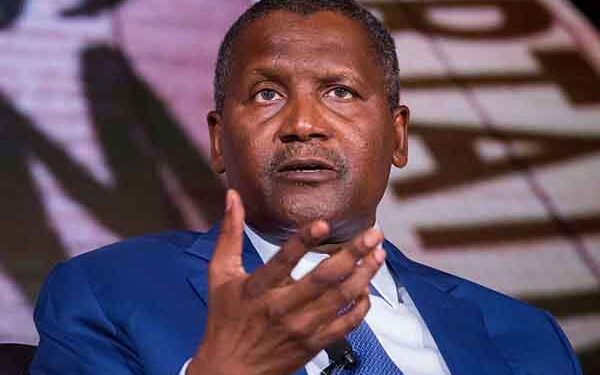
Aliko Dangote, born to Mohammed Dangote and Mariya Sanusi Dantata, had his Bachelor’s degree in Business Studies and Administration at the Al Azhar University, Cairo, Egypt, and rose to become one of Africa’s wealthiest businessmen sitting on the number one spot for many years.[2]Aliko Dangote | Biography, Businessman, Group, Foundation, & Facts | Britannica
He is most popularly known for establishing the Dangote cement as well as other great enterprises. He has taught us many life’s and business lessons. Some of these include the following:
- Loyalty: He served his uncle in loyalty from whom he learnt the trade and secured a loan.
- Risktaking – He had once talked about the importance of taking calculated risks in an interview.
- Diversification and Innovation: These have led him to diversify into several other business enterprises aside from cement production.
- He believes you can make it anywhere in the world. He once said “Nigeria is one of the best-kept secrets”, emphasizing the huge opportunities in Africa that most people fail to see.
- “As a good business leader, you have to listen to people.”
- “Be consistent.”
- “You must possess the right information.”
- “Being focused is key.”
- “In business, it is important to think ahead.”
- “Having a vision is important to success. Have a vision of what you want to achieve.”
- “You must think big, and act big as well.”
- “See only the possibility, others might not agree but it’s about what you believe.”
- “Be a strategic planner. Plan with a strategy in mind, anticipate challenges, and proffer solutions to them.”
- “Your name is your most valuable asset. Protect it!”
2. Strive Masiyiwa
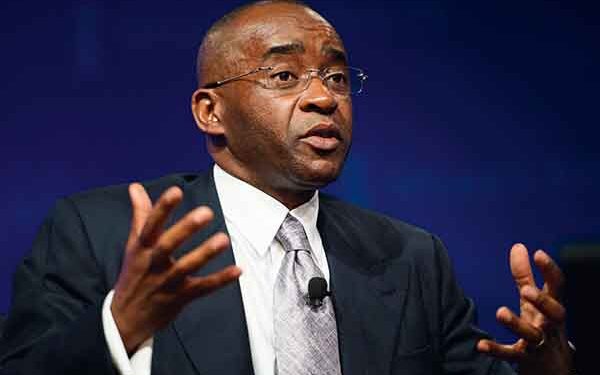
Strive Masiyiwa is another African entrepreneur who has made a remarkable impact on young entrepreneurs on the African continent. He is known popularly for the establishment of Econet Wireless Zimbabwe, which also moved into Nigeria and several other African countries.
Strive has other establishments and investments including Cassava Fintech, Liquid Telecom Group, Vaya Electric, etc. Here are some inspiring life and business lessons from Strive Masiyiwa.
- He is an ardent follower of the teachings of Peter Drucker in his ideologies about innovation, risk-taking, and determination.
- He once explained the importance of boldness and risk-taking in achieving success in entrepreneurship.
- He teaches diversification, which he has practically demonstrated via his varied interests in telecommunication, finance businesses, automobiles, and the health industry.
- “Start from wherever you are, with whatever you’ve got” – Jim Rohn.
- “When you see a problem, think about a solution.”
- “I do not give because I have; I have because I give.”
- “Know how to evaluate your business progress.”
- “Think about innovation. Innovation applies to any type of business.”
- “It is only when you think to act that you achieve the greatest. Don’t only dream, act.”
- “Whenever you see a successful business, someone made a courageous decision” – Peter Drucker.
3. Tony Elumelu

Tony Elumelu, christened Anthony Onyemaechi Elumelu, was born and brought up in Jos Plateau, Nigeria. After graduating with a bachelor’s degree in Economics from Ambrose Alli University, Ekpoma, Edo State in 1987, he proceeded to pursue his Master’s degree in Economics from the University of Lagos which he bagged in 1990.
Having worked for several years in the banking sector, he acquired the Standard Trust Bank which he renamed to United Bank for Africa, and turned it into one of the most successful banks in Nigeria and Africa today.
His entrepreneurial spirit has made him create investments in power, oil and gas, real estate, hospitality, and healthcare through his Heirs Holdings. While he attributes his success to hard work and luck, he has shared these business lessons to help other entrepreneurs in Africa and beyond.[3]Tony Elumelu – This is me – aged 34! I had just become CEO of… | Facebook
- He has also emphasized the richness of Africa for doing business (coining the term “Africapitalism”, emphasizing the importance of recognizing the business opportunities anywhere you find yourself.
- “It is never too late to start something; deciding against doing anything to change your financial situation is even worse.”
- “Hard work and consistency can bring a dying business back to life.”
- “Always do what you love. That way, you won’t run out of passion and zeal for what you do.”
4. Mo Ibrahim
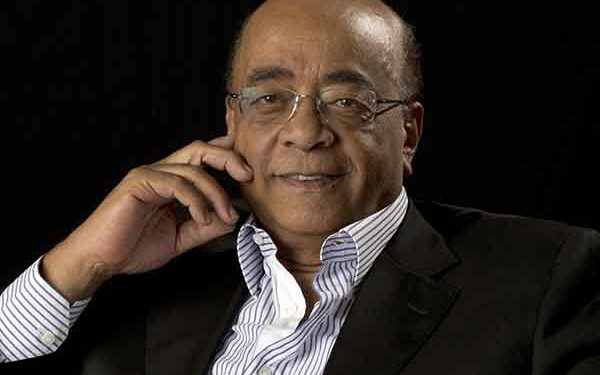
Mohammed ‘Mo’ Ibrahim is a Sudanese of Nubian descent. He was born in 1946 as the second child in a family of five, and after a few years, he soon completed his university education at Alexandria University, Egypt, bagging a bachelor’s degree in Electrical Engineering.
After working with Sudan Telecom for a few years after his return from the University, he proceeded to do his master’s in Electronics and Electrical Engineering and a PhD in Mobile Communications from the Universities of Bradford and Birmingham, respectively.
He is most famously known for his role in the invention of the first UK mobile phone network, and his establishment of Mobile Systems International (MSI), a consultancy and software company. The latter from which MSI-Cellular Investment (aka Celtel) sprang up, serving over 23 African and Middle Eastern countries as a mobile phone operator.
After selling Celtel, Ibrahim has continued to venture into entrepreneurial projects and philanthropy. He is also renowned for the “Ibrahim Index of African Governance” which uses ‘certain’ criteria to rate all 54 African countries annually according to their performance in the Good Governance Index, and the African leader who tops the list is rewarded with $5 million that year to further promote good governance.
Some of his business and life lessons include the following:
- He believes that a business can only truly succeed if the entrepreneur can lead the people and resources in a free and fair manner. He also emphasizes the importance of good African leadership in entrepreneurial development on African soil.
- “Follow your interest even if you are not sure how it will make money.”
- “Be adaptable to change.”
- “Problems are opportunities.”
- “You can do business in Africa without corruption.”
- “Bring others along, and succeed together.”
- “People who do serious things take themselves seriously.”
- “Stand for what you believe in.”
5. Sheikh Mohammed Al-Amoudi

Sheikh Mohammed Al-Amoudi, born in Ethiopia to a Saudi-Arabian father and an Ethiopian mother, emigrated from Ethiopia to Saudi Arabia where he acquired his full Saudi citizenship.
He is well-known for establishing Mohammed International Development Research and Organization Companies (MIDROC), which is part of the Midroc-Derba conglomerate, and is involved in Gold mining, construction, agriculture, cement production, steel production, transportation, petroleum refining, hotel management (owns the Sheraton Addis Hotel).
Some inspiring lessons from this African business leader include the following:
- He teaches the importance of learning to recognize and hop into new business opportunities when he says, “For me, businesses are like buses. You stand in a corner and you don’t like where the first bus is going? Wait ten minutes and take another. Don’t like that one? They’ll just keep coming. There’s no end to buses or businesses.”
- “You just have to keep looking and trying.”
- “Perseverance and diligence in what you do are what guarantee you success.”
- “There is always room for change, especially when old methods do not produce desired results.”
- “Don’t let the noise of others’ opinions drown out your own inner voice. And most importantly, have the courage to follow your heart and intuition.”
- “There is great power in your mind. If you think you can do something, or if you think you can’t, you are right.”
6. Raymond Ackerman
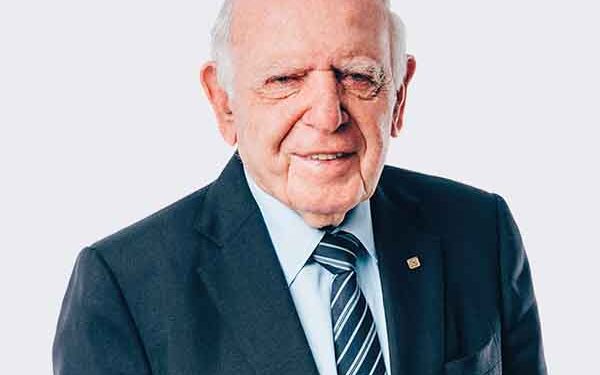
After graduating from the University of Cape Town at the age of 20 with a Bachelor’s degree in Commerce, he joined the Ackerman’s Greatermans group as a trainee manager. The company was founded by his father, Gus Ackerman, just after WWI but was later sold to the Greatermans group but was still significantly staffed by the Ackermans.
After being offered the position at the head office in Johannesburg and eventually the chairman of a new Greaterman’s food retailer venture, “Checkers”, Raymond demonstrated outstanding performance and was made the managing director of 85 Checker’s stores in the year 1966. However, he was fired from his top managerial position that same year for unknown reasons.
Instead of sitting down to regret why he put all his best into a company that would later fire him unjustly, Raymond used his severance package and a bank loan he secured to acquire four stores from Jack Goldin in Cape Town and named them Pick ‘n Pay. Starting with 175 employees, he grew Pick ‘n Pay into one of Africa’s largest supermarket chain stores at that time.
Here are some valuable lessons this inspirational African business leader has to teach.
- He teaches the philosophy of “Customer Sovereignty” which he took from the teachings of W.H. Hutt, his teacher at the University of Cape Town. Hutt told him, “If you fight for the consumer, she will look after you. Fight monopolies, fight collusion, fight apartheid, fight anything that’s wrong for the man in the street, be he black or white”. This was opposed to what his father, Gus Ackerman, taught him.
- “When you make the consumer the king, she will do everything possible for you.”
- “You’ll never make money unless you have a mission. Like a doctor serves his patient, you’ve got to serve your consumer.” – Hutt.
- “Using the analogy of the table; The consumer must sit on top. She is your mission. However, you must have sound administration as one leg of the table; the right merchandise for the consumer at the right price as the second leg – meaning you have to fight collusion and cartels; social involvement as the third leg; and finally, people, just like the third leg, are the fourth leg.” – Bernado Trijiullio.
- “The more you give in life, the more you get back.”
7. Wale Tinubu
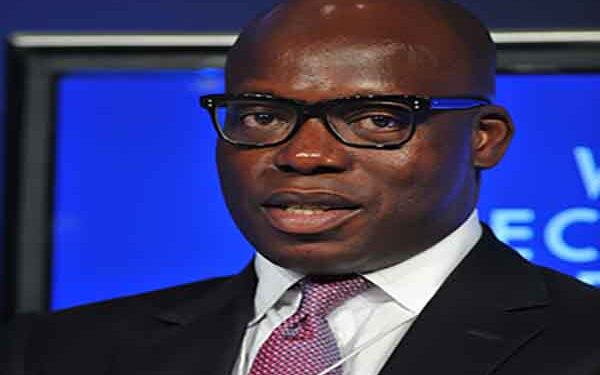
Jubril Adewale “Wale” Tinubu was born to Alhaji Kafari Tinubu a Nigerian businessman, consultant, and lawyer. He obtained his bachelor’s degree in Law from the University of Liverpool and master’s degree in Law from the London School of Economics.
He is most renowned for establishing Oando Plc, a Nigerian-based oil and gas trading and distribution company, despite hopes being propped up in the expectation that he would take over the family law firm. His resilience and determination have taught many people great business lessons in pursuing their passions.
Here are other lessons from this entrepreneurial giant.
- He stated that the African business environment allows excuses for several business mal-behaviors but he insisted that having a “first-world” mentality (a refined attitude of diligence, punctuality, and strategic planning) can help any business leader to become more efficient and productive in business.
- He believes in the thriving spirit of Africans; a hostile and competitive environment demands equally strong-willed entrepreneurs.
- “Pursue what your passion craves irrespective of your academic qualifications.”
8. Manu Chandaria
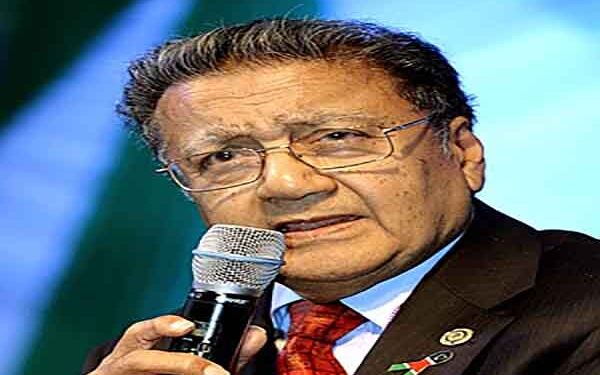
Manilal ‘Manu’ Premchand Chandaria was born in Nairobi, Kenya, in 1929, to Premchandbha and Poonjiben Chandaria. His father, Premchandbha, was a merchant who had migrated from Saurashtra, Gujarat, India to Kenya in 1915. After fleeing to India with his family during WWII, he completed his University of Bombay, Jamnagar, India in 1949 and thereafter got a second bachelor’s degree and a master’s degree from the University of Oklahoma, United States, in 1950 and 1951 respectively.
On returning to Kenya, he continued with his father’s small aluminium plant turning the small family business into the multinational ComCraft Group using his strong business and entrepreneurial acumen.
Here are some inspiring lessons from Many Chandaria.
- He talks about identifying special needs and potentials in every African population an entrepreneur finds him/herself. “Other sectors which we are now doing is the housing and shelter, and I think that is ever-growing and I don’t think that will ever change. I don’t think we will change that now. We are not really sure we will be going into electronics or software or telephony. Our specialty in the last 70 years or 80 has been built on aluminum and steel and I think that there is a great need for both of them.”
“There are specialties in each country, … in Africa, … But each one has got a speciality, and those specialities, if you can really capitalize on those specialities, I think that you are making a great…”
- He recognized the importance of using what you have to get what you want when he once said “I wasn’t born with a silver spoon in my mouth, there were at least spoons in the house”.
- It is important to understand the peculiarity of every business environment and exploit it accordingly.
9. Mike Adenuga

Michael Adeniyi Agbolade Ishola Adenuga Jr, popularly known as Mike Adenuga, was born to Oloye Michael Agbolade Adenuga Snr, a school teacher, and Omoba Juliana Oyindamola Adenuga, a businesswoman of royal Ijebu descent. After completing his primary and secondary education in Nigeria, he obtained his graduate and post-graduate degrees in the United States.
On return to Nigeria, he took over his family’s lumber business alongside other businesses like machinery trading, fabric, beer, and soft drinks. When he heard of the government opening for private individuals to venture into the oil industry, Adenuga seized the opportunity to establish Consolidated Oil Limited (now Conoil) in 1984.
Adenuga was also the founder of Globacom telecommunication company in 2003, for which he is most popularly known. Here are some motivating lessons he teaches other African entrepreneurs.
- He believes in hard work, diligence, and focus. He believes that you can achieve anything you want if you develop these traits, irrespective of your family background. From being the son of a teacher and small businesswoman, he paved his way to becoming one of Africa’s wealthiest businessmen.
“The harder you work, the luckier you get”. MA
“If you are hardworking and determined, you will make it and that’s the bottom line”. MA
- “In today’s world, paradoxically, it is the boldest action that is often the safest. Remaining where you are in a world that is changing so rapidly is, in fact, the most dangerous of all places to be in”.
- “Whether you are a farmer, builder, or engineer, the opportunities are equal. Just add a little innovation”.
- You have all it takes to succeed.
- Plan for opportunities and seize them when they come.
- Diversification of investments is key to great wealth.
- In all, add innovation to the list. That’s what makes the difference.
10. Patrice Motsepe
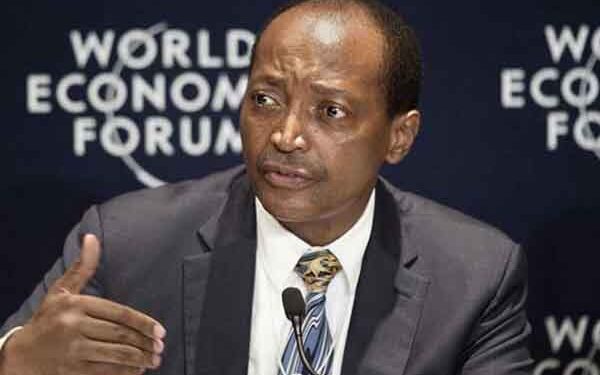
Patrice was born to Kgosi Augustine Motsepe, a Chief of the Mmakau branch of the Tswana people of South Africa. He learned basic business principles from his father in his Spaza (home shop) and also developed first-hand mining skills from him.
Eventually, after his University education in Swaziland and South Africa (Arts and Law degrees, respectively), he thereafter specialized in mining and business law, establishing ARMGold, the first South African black-owned company for which he is most popularly known.
Here are some business principles he has once taught to entrepreneurs.
- In becoming the best, you need to constantly review inputs and outcomes, and also get the best minds to do the job.
- “All our businesses comprise of the BEST people money can buy. My policy is to hire the best and pay them well”. “One has to set high standards… I can never be happy with mediocre performance.”
- Be prepared for opportunities and when they come, never miss them.
- Never settle for less, never remain in one position, and always keep improving.
- His success irrespective of his family background has demonstrated that you can achieve any success if you put your mind to it.
11. Adenike Ogunlesi

Adenike Ogunlesi (shortened “Nike”, pronounced “Neekay”) was born in 1959 by a Scottish mother, Elizabeth Okuboyejo, to a medical doctor of the Yoruba ethnic group of Nigeria. Adenike’s mother was a fashion entrepreneur who discovered and pioneered the popular Nigerian Adire fabric.
After his secondary education in Oyo State, Nigeria, she proceeded to study Law at the Ahmadu Bello University, Zaria, but things did not go as planned. In her second year, she dropped out of school because she felt Law would not give her the satisfaction she desired. After joining her mother’s business, she later started her children’s clothing company named Ruff ‘n’ Tumble which she started from the boot of her car in 1996.
Here are some business lessons from her.
- It is important to do what you are passionate about even if it doesn’t seem lucrative at first.
- She believes in the tenacity of purpose; “Being limited by funds and with no access to investors, tenacity of purpose will always reign supreme, as long as you’re building a venture on a viable business model”.
- Have a viable business plan, and critically think about growth, development, and innovation.
12. Fred Swaniker
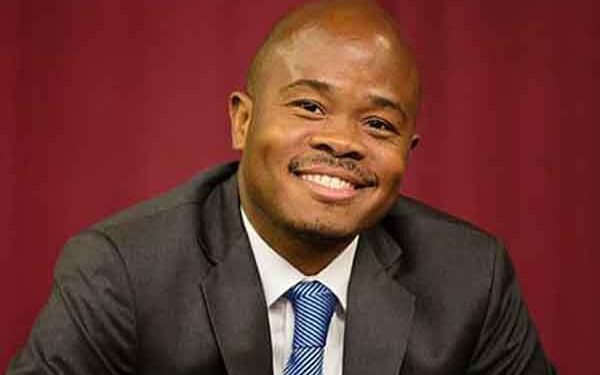
Frederick Kenneth Swaniker is a Ghanaian entrepreneur and leadership development expert born to a lawyer father and an educator mother. After completing his university education at Macalester College in Minnesota, United States, he worked for a while at McKinsey & Co. in Johannesburg, South Africa, and then obtained his MBA from Standford Graduate School of Business.
Eventually, Fred Swaniker established the African Leadership University (ALU), a network of tertiary institutions committed to instilling exceptional leadership, administrative, and entrepreneurial qualities in her students. He also established Global Leadership Adventures based in San Diego, another exceptional institution committed to developing young people in leadership.
Here are some insightful lessons from this great African business leader and entrepreneur.
- All businesses in Africa need three things; a viable product, some capital, and talented teams, of which finding well-trained talent with the skills to execute is the real shortage, not capital. He believes that the success of business in Africa is based on a sound understanding of leadership and entrepreneurship.
- When you start up something, surround yourself with the right people. “The real secret to your business success is the people you bring around you”.
- “Don’t base people’s abilities on interviews. Finding the great or right people involves giving them special tasks related to your business.”
- “Experiences you gain from small projects can go a long way to give you the confidence for bigger successes. Start young and early, and gain a lot of experience.”
- “If you want something to grow really big, you have to give it away, and this entails delegating roles and empowering other people to do things by themselves.”
13. Patrick Awuah
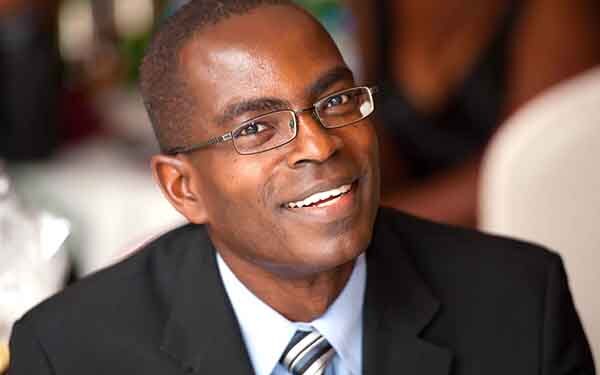
Patrick Awuah Jr. is a Ghanaian entrepreneur. He was born and brought up in Accra, Ghana, where he attended the Achimota Secondary School, after which he moved to the United States for further studies under a full scholarship in 1985.
After earning his bachelor’s degree in Engineering and Economics, he worked at Microsoft (1987-1997) as a software engineer/program manager, following which he decided to come back to Africa to establish the African University in Ghana.
Here are some business insights from Patrick Awuah.
- If you will succeed in business, you must be able to face your fear, the fear of failure. You also need to prepare yourself for the journey and get someone or people who will go on the journey with you.
- You may come face to face with failure sometimes, but the network of people around you, if good enough, will help you navigate the path to success.
- He believes that by having educated leaders, we can have a better society. – “Every society must be intentional about educating its leaders”.
- Innovation is based majorly on the people involved and the team of the organization, and not necessarily the facility, money, etc.
- “When we think about innovation, the first answer is not always the right answer; and to get to the right answer, we have to do a deep analysis of what are the root causes of the problem we are trying to solve”.
- “The ability to confront complex problems and to design solutions to those problems, the ability to create is the most empowering thing that can happen to a man”.
- Authenticity, honesty, and building relationships are major elements of entrepreneurship.
14. Njeri Rionge

Njeri Rionge was born and brought up in Nairobi, Kenya. Her father was the head architect for the city council of Nairobi and her mother was a farmer. As the first child of a family of five, she started her entrepreneurial journey immediately after completing her primary education. She picked up yogurts from the dairy farm very early in the morning and sold them to schools from the boot of her friend’s car during the break.
Later, she worked as a hairdresser and at the same time sold luxury clothes to her wealthy clients. She also saw an opportunity in the computing space by starting Wananchi Online, an Internet Service Provider in Kenya.
Here are some fundamental business lessons from Rionje.
- Learn to recognize opportunities and exploit them early.
- Think of how much value you can provide to people; “Success for me is defined by increased value – not simply financial rewards.”
- “Taking an idea that’s on paper or in your head and moving it forward into real, tangible action is the true spirit of entrepreneurship”.
- Always take responsibility for your business actions, that way you will be more deliberate in your decisions each time.
- Seek to provide value to people. This is what business success is all about.
- “Every single entrepreneur must have a backbone, if you don’t have the backbone and capacity to sustain and to be agile enough to organize your ideas and your business growth, then you’re probably not made up for business and entrepreneurship”.
- It is important you also build a strong network of people who are willing to support you. This you do through integrity and competence.
15. Folorunsho Alakija

Folorunsho Alakija was born in 1951 in an upper-middle-class polygamous family to Chief L.A Ogbara of Ikorodu, Lagos State. She completed her primary and secondary education at Dinorben School for Girls, Wales, and Muslim High School, Ogun State, Nigeria, respectively.
She started her career in 1974 as an executive secretary at Sijuade Enterprises in Lagos, Nigeria, later becoming the executive secretary of the now First City Monument Bank where she took up several offices subsequently. She eventually quit her job in the ’80s to pursue her passion for fashion design.
Though she excelled in fashion as the founder of Supreme Stitches, she is most well-known for her activities in the oil exploration company, Famfa Limited, which she established.
She also has investments in real estate and printing. But here are some important business and life lessons her life and words teach us.
- It is important to discover God’s purpose for your life and stay determined to fulfill it through diligence and perseverance. She once said, “Always remember, that anything worth doing at all is worth doing well, or not at all”
- You do not have an excuse not to be successful. Even without a university education, she rose to become the richest woman in Africa and has received several honorary degrees including a doctorate.
- She described success with SUCCESS as follows:
- S – Sacrifice. Dream big and dream to deliver. Pay the sacrifice to make this happen.
- U – Utilize your time and talent. When you waste time and talent, it is difficult to regain what you’ve lost.
- C – Consistently focus on your goals. The tough get going even when the weak are stuck with challenges.
- C – Credibility and reliability should be your watchword.
- E – Educate yourself, renew your knowledge, and continue to retrain yourself.
- S – Say “no” to those who are trying to discourage you.
- S – Seek ye the kingdom of God and his righteousness. Never leave God out of it.
16. Sibongile Sambo
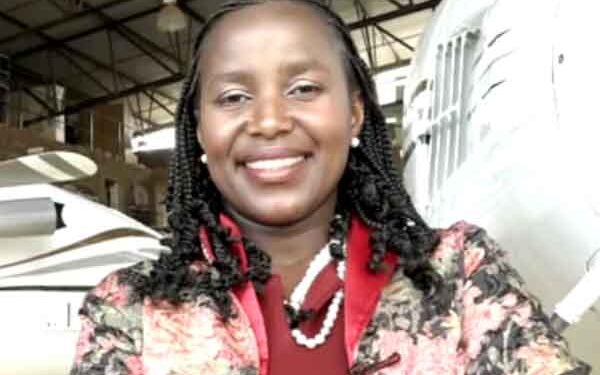
Sibongile Sambo was born in Bushbuckridge, Mpumalanga, South Africa, in 1974. She showed an interest in aircraft from an early age, watching planes flying overhead and wondering if she could one day fly in one herself.
To follow her passion, she applied for the job of a flight attendant at South African Airways but she was rejected due to height requirements. Eventually, she started her own aviation business with not much experience in aviation and insufficient capital, establishing SRS Aviation, the first and only black female-owned aviation company in Africa.
She is another example of someone who turned a setback into an opportunity. Here are some inspiring lessons from Sibongile Sambo.
- Follow your passions without relenting despite the challenges. You can succeed in business and entrepreneurship.
- If you can dream it, you can achieve it.
- Nobody will notice you if you remain in one position. You have to go out and do something.
- You get support and assistance only when you have been seen doing something – “Nobody will see you if you are sitting in your own corner. You have to go out there, you have to be visible, to do something to be able to get even more support and assistance”.
17. Divine Simbi Ndhlukula
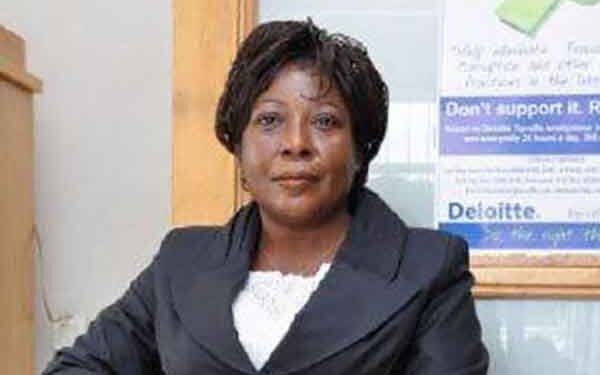
Divine Ndhlukula was born in 1960 to Mary and Piniel Simbi in rural Gutu, Zimbabwe. She grew up in Gutu, where she attended several primary and secondary schools. She obtained an Executive MBA at Midlands University, Zimbabwe, and another MBA and an honorary PhD in Business Leadership from the Women’s University in Africa.
Her major establishment is SECURICO, a security company that has become one of the largest security firms in Zimbabwe.
Here are some lessons she teaches entrepreneurs.
- There is no easy road to anywhere worth going. Determination and persistence are what would keep any business person to keep going.
- Be determined and stay determined.
- Don’t allow the challenges and obstacles in business to make you give up on succeeding.
18. Tabitha Karanja
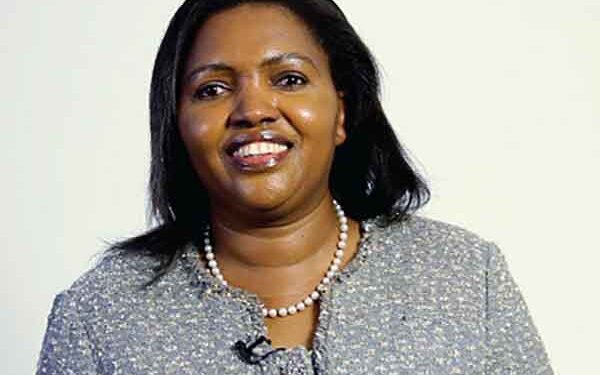
Tabitha Mukami Muigai Karanja is a Kenyan businesswoman, entrepreneur, and industrialist, born in 1964. She is the first child in a family of ten. Her father was a government driver and her mother was a farmer but her parents were determined to train all the children through school.
She worked extremely hard and was determined to create a better path for herself and her siblings. After bagging a bachelor’s degree in Business Administration from the University of Nairobi, she was employed as an Accounting Clerk in the Ministry of Tourism.
Two years later, she quit her job and established a kitchen hardware business which she later closed in 1997, and then established Keroche Breweries renowned for making fortified wine, spirits, and beer.
Here are some inspiring lessons from this African business leader.
- Challenges can come in the course of any business, but ‘giving up’ should not be in your vocabulary. In everything you do, dream big and never settle for less.
- Resilience and fortitude are must-haves in business.
- Dream big, and keep doing so.
- Courage to venture into your ideas even when everyone is afraid to do so.
- Know your passion and venture into it courageously.
19. Bola Shagaya
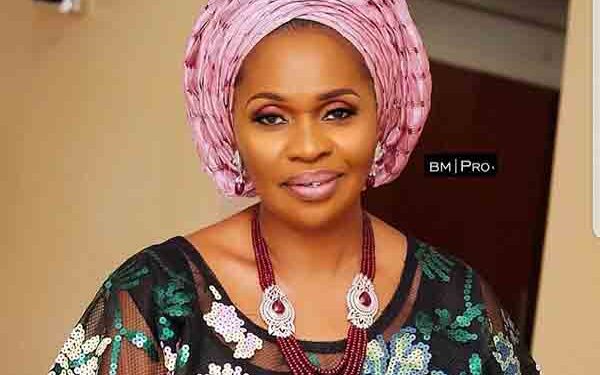
Bola Muinat Shagaya was born in 1959 to Adut Makur, a Sudanese seamstress, and Emenike Mobo, a Nigerian public servant. She finished her secondary and tertiary education at Queens School, Ilorin, and Ahmadu Bello University, Zaria, respectively. She further went to Armstrong College in California, where had a bachelor’s degree in Accountancy.
She is most famously known for founding the Bolmus Group (named after her names BOLa MUinat Shagaya), a conglomerate with holdings in real estate, oil and gas, banking, and photography
Since then, she has been in many different businesses but she is most well-known for being the founder of Bolmus Group, a conglomerate with holdings in real estate, oil and gas (owner of Voyage Oil and Gas Limited), banking (she is a board member in Unity Bank, Nigeria Plc), and photography (she is the owner of Fotofair photography firm in Nigeria).
Here are some essential business and life lessons to learn from Bola Muinat.
- Stay determined.
- You can achieve anything you put your mind to, and she has remained determined in any areas of her passion even in those industries that society today has labeled as “men only”.
- Build your circle of influence, and create vital connections.
- Diversify your business ventures.
20. Bridgette Radebe

Bridgette Radebe was born to Chief Kgosi Augustine Motsepe of the Mmakau branch of the Tswana people, and her mother is Key Motsepe. She is the older sister of Patrice Motsepe, the South African businessman already discussed above, and they are siblings to the current First Lady of South Africa (as at the time of writing this article), Tshepo Motsepe (Dr.), wife of President Cyril Ramaphosa.
Just like his brother, Patrice Motsepe, Bridgette was also interested in mining where she made huge fortunes, establishing her company, Mmakau Mining, into one of the most successful mining companies in South Africa.
Following her exploits in business, here are some lessons her life, words, and business activities teach us.
- Every business person should develop the ability to face the fear of taking ‘calculated’ risks.
- It is important to have a mentor when starting a business – “The biggest lesson I’ve learned is how important it is to have a mentor when you start your business. There is knowledge I would not have had access to if it weren’t for my mentors”.
- Be unstoppable and unyielding, despite obvious obstacles.
Final words
Even though this was a long read, I tried to simplify it as much as possible. I hope you are inspired to keep pushing for success. As long as you are committed, there are no limits to what you can achieve. Where there is a will and determination, there is a way and provision.
If you are an African entrepreneur, comment on how you were able to overcome a business challenge in your journey. This way, you too can inspire other people and even myself.

















Nice article sir
Thank you very much dear. I’m glad you enjoyed it.